Teaching Fantasy Part 1: Rewards, Backfires, Escapes
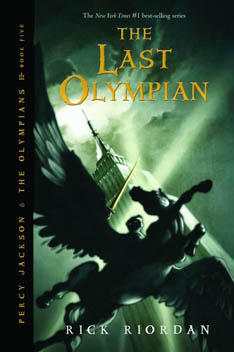 “What do you do when nobody’s making you do anything?”
“What do you do when nobody’s making you do anything?”
His parents are making him meet with me for tutoring in the first place, so why should the kid trust me? I look like any other English teacher to him. No matter what he does when he’s free, he assumes I’ll disapprove. He’ll answer with embarrassment, and be surprised when nothing bad happens.
“And what do you read when nobody’s making you read anything?”
Most of my students, boys and girls both, answer, “Fantasy.” They say that with embarrassment, too, because English teachers are famous for their aversion to fantasy.
Yet when you read around in books about teaching teenagers, or teaching writing, or the intersection of gender and learning, it’s common to find the authors lamenting that fantasy is not just a boy genre (as the reviewer Ginia Bellafante notoriously called it), but the boy genre, the only one their male students read voluntarily. Why does the education community fall into this error? Is it that the girls are able to conceal their preferences better, or that they’re able to stomach the tedious mainstream books they’re assigned better? Or maybe it’s that the kinds of fantasy novels girls prefer are less vexing to their teachers? I don’t know.
I will concede that the boys I tutor tend to be more shut down as learners, and more shut down about literacy, than my female students are. Some education writers have explored this widely observed disparity eloquently and imagined fantasy literature as one of a range of remedies for it. In Boy Writers: Reclaiming Their Voices, Ralph Fletcher implores his English teacher readers, whom he assumes will be mostly female and uniformly hostile to genre fiction, to allow their students to read and write fantasy at school. He takes particular pains to advocate for fantasy stories that incorporate violence.
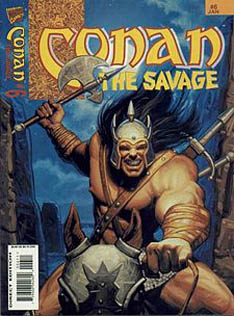 Fletcher describes how even the boys who like to write keep all the writing they care about at home because they are not free to show un-self-censored writing to their teachers “these days”:
Fletcher describes how even the boys who like to write keep all the writing they care about at home because they are not free to show un-self-censored writing to their teachers “these days”:
Because of the tragic events at Columbine High School, many adults consider boys and their penchant for violent play as a pathology that must be treated, or at least taken very seriously, rather than as a natural (and harmless) developmental stage. This has had a chilling effect on teachers’ willingness to allow boys to include firecrackers, gunpowder, knives, or bows and arrows in their stories.
Here at Black Gate, we might add broadswords and fireballs to that list.
Notably, it’s not just female teachers who struggle with this uneasiness. Fletcher interviews a veteran teacher, Carl Anderson, who says of the mistakes he made as a beginner:
I used to have a saying in my writing workshops: No writing about blood, guts, aliens, or farting in writing workshop. That one sentence probably turned off a good number of the boys I taught from wanting to write!
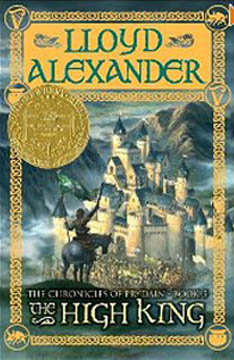 Though I am not much given to writing about farts, I have to say, had I heard a teacher say that to my class when I was a kid, I would have known it was an unfree writing setting, whether my particular fixations were on the forbidden list or not.
Though I am not much given to writing about farts, I have to say, had I heard a teacher say that to my class when I was a kid, I would have known it was an unfree writing setting, whether my particular fixations were on the forbidden list or not.
What might a free setting look like for young people learning to write? As a parent of two young boys, and as a teacher who’s helped a lot of damaged students patch themselves up after things have gone wrong at school, I’ve made an almost obsessive study of the homeschooling movement. Homeschoolers and their methods are far more various than most people imagine. I recently read a collection of old essays from the 1970s by John Holt, the late guru of the unschooling branch of the homeschool constituency. There was a lot to disagree with there, but this part of his argument felt urgently relevant to me:
For a healthy and active fantasy life children need time, space, and privacy, or at least only as much companionship as they choose. Obviously school, or any other large-group situation—day-care center, nursery school, play group, etc.—does not allow much of this. Perhaps worst of all, they are usually under the eye and control of adults who, even if they will allow children a fantasy life, feel they have to watch it, understand what it means, judge it, make use of it. It was for just this reason that a well-meaning and quite highly praised book, written about ten years ago, called Fantasy and Feeling in Childhood, seemed and still seems to me deeply mistaken. The gist of it (and there may well be many books like it) was that if we, i.e. people who work in schools, paid enough attention to the fantasy lives of children, we could learn to understand them and bend them to our own purposes. This would be a great mistake and a great wrong. Instead, we should be content to watch and enjoy as much of children’s fantasy lives as they will let us see, and to take part in them, if the children ask us to and if we can do so happily and unselfconsciously. Otherwise, we should leave them alone. Children’s fantasy is useful and important to them for many reasons, but above all because it is theirs, the one part of their lives which is wholly under their control. We must resist the temptation to make it ours. (Holt and Farenga, Teach Your Own)
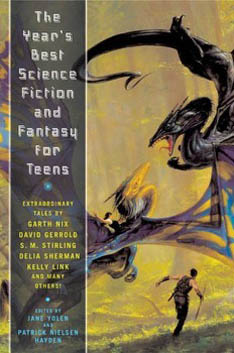 Reading those paragraphs in Holt, I thought immediately of Ralph Fletcher’s book on boy writers, with its subtitle, Reclaiming Their Voices. Fletcher seems to be a good egg—I wish all the teachers of my childhood had been as thoughtful—but for whom are those students’ voices being reclaimed? By and for the boys themselves? Or by the schools, for the schools’ purposes? Imagine the next generation’s Robert E. Howard, or the next generation’s C.S. Lewis for that matter. In the long run, would it really be better for that child to do the writing he cares about secretly at home, or in class where his teachers can mold it for his own good (and, incidentally, assure that their school’s scores on the big tests meet the Adequate Yearly Progress requirements of No Child Left Behind)?
Reading those paragraphs in Holt, I thought immediately of Ralph Fletcher’s book on boy writers, with its subtitle, Reclaiming Their Voices. Fletcher seems to be a good egg—I wish all the teachers of my childhood had been as thoughtful—but for whom are those students’ voices being reclaimed? By and for the boys themselves? Or by the schools, for the schools’ purposes? Imagine the next generation’s Robert E. Howard, or the next generation’s C.S. Lewis for that matter. In the long run, would it really be better for that child to do the writing he cares about secretly at home, or in class where his teachers can mold it for his own good (and, incidentally, assure that their school’s scores on the big tests meet the Adequate Yearly Progress requirements of No Child Left Behind)?
I hesitate, as a teacher and as a person, to intrude on the one genre that my hard cases are still able to read for pleasure. Yet they need help from someone, and they need to read something, and they seem so relieved to hear that the books they love are best are the ones I love best, too. Sometimes that little bit of common ground allows them to bring some true motivation to a subject that’s been all drudgery for them for years.
Alas, motivation turns out to be a surprisingly complicated phenomenon. In Punished by Rewards: The Trouble with Gold Stars, Incentive Plans, A’s, Praise, and Other Bribes, Alfie Kohn explores the huge body of evidence against pop behaviorism, and the thorny problem of trying implement any alternative teaching method in a culture where pop behaviorism is pervasive.
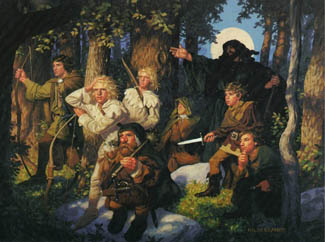
Without really thinking about it, most of us assume there is a thing called “motivation”—a single entity of which someone can have a lot or a little. One’s level of motivation can go up or it can go down. We offer people rewards for doing what we want because we figure this will make them more motivated to do it.… This strategy might very well make sense if the underlying model of motivation were accurate. Unfortunately, it isn’t. The implicit premise of the words “intrinsic” and “extrinsic” is that there are qualitatively different kinds of motivation, and the kind matters more than the amount. Even large quantities of the wrong kind (namely, extrinsic) do not bode well for the goals that matter. Thus, I like to tell teachers they shouldn’t care how motivated their students are, just as managers shouldn’t care how motivated their employees are. What matters is not how motivated someone is, but how someone is motivated.
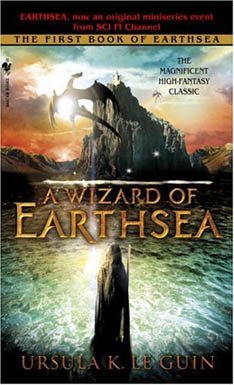 See, there are these cool studies showing how behaviorist reinforcements backfire horribly when used on students. They basically work like this: one group of kids has the option of playing some games, or not, whatever, while another group of kids is rewarded for playing the very same games. The children who were not offered a reward go on choosing to play the games, whereas the ones who were rewarded never show any interest in those games again. For those of us who grew up in B.F. Skinner’s world, this seems counterintuitive, but the studies have been reproduced, tweaked, expanded, applied to adults, you name it, and the bottom line is: humans hate being controlled, even subtly, even politely, even when there’s something in it for them. Humans hate being controlled so much, they love less even the things they used to love most if the people trying to control them put in place a regimen of reinforcement to manage that love.
See, there are these cool studies showing how behaviorist reinforcements backfire horribly when used on students. They basically work like this: one group of kids has the option of playing some games, or not, whatever, while another group of kids is rewarded for playing the very same games. The children who were not offered a reward go on choosing to play the games, whereas the ones who were rewarded never show any interest in those games again. For those of us who grew up in B.F. Skinner’s world, this seems counterintuitive, but the studies have been reproduced, tweaked, expanded, applied to adults, you name it, and the bottom line is: humans hate being controlled, even subtly, even politely, even when there’s something in it for them. Humans hate being controlled so much, they love less even the things they used to love most if the people trying to control them put in place a regimen of reinforcement to manage that love.
And this is my nightmare of what would happen if more teachers actually heeded Ralph Fletcher’s plea to let boys, or students in general, read their fantasy novels for school credit. Subject that last sliver of reading interest to the power of the grade, with all its attendant bribes for getting good grades and penalties for dragging down test scores, and what will be left for these kids to love to read?
Since some students do risk the condescension or censure of their teachers by bringing fantasy novels to school, and some teachers do try to engage with fantastic literature in the classroom, I have to hope there are good ways for that to play out. Our genre’s founding professor has been helpful on that score. You know that bit from Tolkien’s “On Fairy Stories“ that people quote all the time? The part you see everywhere starts like this:
I have claimed that Escape is one of the main functions of fairy-stories, and since I do not disapprove of them, it is plain that I do not accept the tone of scorn or pity with which ‘Escape’ is now so often used. Why should a man be scorned if, finding himself in prison, he tries to get out and go home? Or if he cannot do so, he thinks and talks about other topics than jailers and prison-walls?
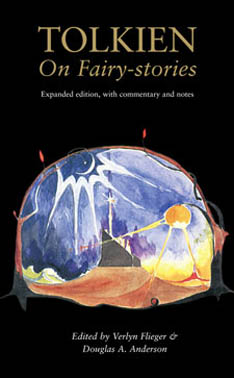 Usually, whoever’s quoting him stops here, but Tolkien is all warmed up now. It’s not enough to insist that reading fantasy is acceptable; he makes a heroic obligation of writing it:
Usually, whoever’s quoting him stops here, but Tolkien is all warmed up now. It’s not enough to insist that reading fantasy is acceptable; he makes a heroic obligation of writing it:
Fantasy is escapist, and that is its glory. If a soldier is imprisioned by the enemy, don’t we consider it his duty to escape?. . .If we value the freedom of mind and soul, if we’re partisans of liberty, then it’s our plain duty to escape, and to take as many people with us as we can!
(I especially love that exclamation point.)
My students’ parents pay me for test prep and homework help, and I give them those things, well and in good faith. My students, though, want to be human beings first and students second. Some of them are struggling to hold onto the fact that they’re human beings at all. Here I come with a satchel full of dictionaries and Elvish waybread, and maps of places no car can take us.
Sarah Avery’s short story “The War of the Wheat Berry Year” appeared in the last print issue of Black Gate. A related novella, “The Imlen Bastard,” is slated to appear in BG‘s new online incarnation. Her contemporary fantasy novella collection, Tales from Rugosa Coven, follows the adventures of some very modern Pagans in a supernatural version of New Jersey even weirder than the one you think you know. You can keep up with her at her website, sarahavery.com, and follow her on Twitter.
I’ve had terrific success teaching Chris Wooding’s fine YA novel, POISON, to 8th graders. It’s a real mindbender that questions the nature of reality itself–and the kids love it!
In the end, all fiction is fantasy.
I love the Jane Yolen and Patrick Nielsen Hayden anthology The Year’s Best Science Fiction and Fantasy for Teens. It didn’t sell well enough to start an annual series, but it was strong and teachable at many skill and age levels.
My students all love Gabriel Garcia Marquez’s “Last Voyage of the Ghost Ship,” because it’s a single sentence, five pages long, and that introduces them to a joy in transgression that’s about form rather than content. The content’s great fun, too, though they need a bit of help getting it.
Wooding’s one I haven’t read. I’ll have to check him out. Thanks for the tip!
Anyone who find this interesting will also probably find this one.
A terrific first article for Black Gate, Sarah. Well done.
Cool article, Mary! I’ve had my eye on the Tools of the Mind curriculum for a couple of years now. The textbook those two Colorado researchers, Bodrova and Leung, wrote to train teachers in their method is easy to find online. It reads like a textbook, but the ideas are pretty exciting. Vygotsky himself is high on my To Be Read list.
Thank you, John. This was a lot of fun to write. Matthew David Surridge’s posts sort of gave me permission to paint on a much bigger canvas than I usually allow myself on livejournal. It’s been good to write a big, chewy essay for a change, and I’ve been enjoying getting into the conversation here for a while now.
I very much enjoyed this article as well. I think because it strikes home with me. While i never thought any teachers would disapprove of fantasy reading i never could find any. Thats whiy in gradeschool i love Edith Hamilton’s geek mythology or any story that had any fantasy in it what so ever. It wasn’t until freshman year in high school that i discovered RA Salvatore and his cleric quintet series. Changed my life forever..
[…] Black Gate has a great post by Sarah Avery about teaching and fantasy fiction. […]
in Spain for the students in the first years of secondary school sometimes they used young adults fantasy by spanish authors, but later they make young people hate the reading with classics like La Celestina or El lazarillo de Tormes, boring for his ages…
by the way in Spain the thing is worse because fantasy and science fiction are kind of not serious subgenres, you can name of fantasy and s/f authors from France, Italy, Poland, Russia, south America but give me the name of some spanish author known in the USA?
or the UK…
sorry for my english, is correct to say secondary school? or is better used high school?
by the way a very interesting and thought provoking article
Francisco, I’m embarrassed to say, the only Spanish novelist I can think of without Google to prod my memory is Cervantes. That may say more about my limitations as an incurable monoglot, or more about the insularity of American education, than about Spanish genre fiction.
Secondary school is correct, but high school is more commonly used.
I’m glad you liked the article!
[…] me a fresh crop of tutoring students, which means I get to ask one of my favorite questions: What do you read when nobody’s making you read anything? In the nine years since I left the classroom and started making house calls, almost all my students […]
[…] Fletcher, in Boy Writers: Reclaiming Their Voices (a book I’ve mentioned at Black Gate before), puts it this […]